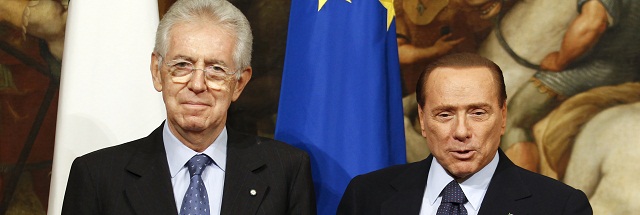“National governments only claim successes but blame Europe for all their failures,” recently said José Manuel Barroso. These words from the president of the European Commission are an invitation to reflect on the current moment the European Union lives in.
The Italian prime minister Mario Monti has announced his resignation once the Parliament approves the state budget. The People of Freedom, the party led by Silvio Berlusconi, has withdrawn its support to Monti and Berlusconi has expressed his intention of being candidate again in the next general elections–probably in February.
In Greece, the government reported it offers up to €30 billion in debt swaps with discounts of between 30 percent to 40 percent. The amount is so small it cannot guarantee that the new financial bailout will have a happy end and the public debt levels will be sustainable in 8 years to 12 years. In fact, just a few days ago the date for the operation was delayed.
Unfortunately, the European summit to be held next Thursday isn’t expected to set any of the important measures to establish a common banking supervision in two years. Most requirements on banking and fiscal integration will be forgotten or simply withheld.
In Spain, the government’s discourse about an official petition for financial assistance still is ambiguous, taking advantage of the relative calm in which markets trade sovereign bonds and corporate bonds, including debt from financial institutions.
Meanwhile in Germany, the authorities hardly acknowledge the economic cost of the eurocrisis. Berlin believes–not without reason–that the country’s economy is sound enough, that natural unemployment rates are healthy and real asset prices are accurate.
This is the crisis of European politics, the crisis of a pan-European solution that seems very complicated in the short term but may be more feasible in the medium and long term. Yet, right now, there are few alternatives for national governments to implement instead of austerity programmes.
The year is finishing and most of the problems we face today will remain under the spotlight in 2013, and in 2014. Will the European Central Bank lower interest rates? Will it implement further long-term refinancing lines? Ultimately, in the Federal Reserve we trust, in the expansionary monetary policy of the US. Europe should thank governor Ben Bernanke.






Be the first to comment on "Euro’s crisis is its politicians, signore Monti"